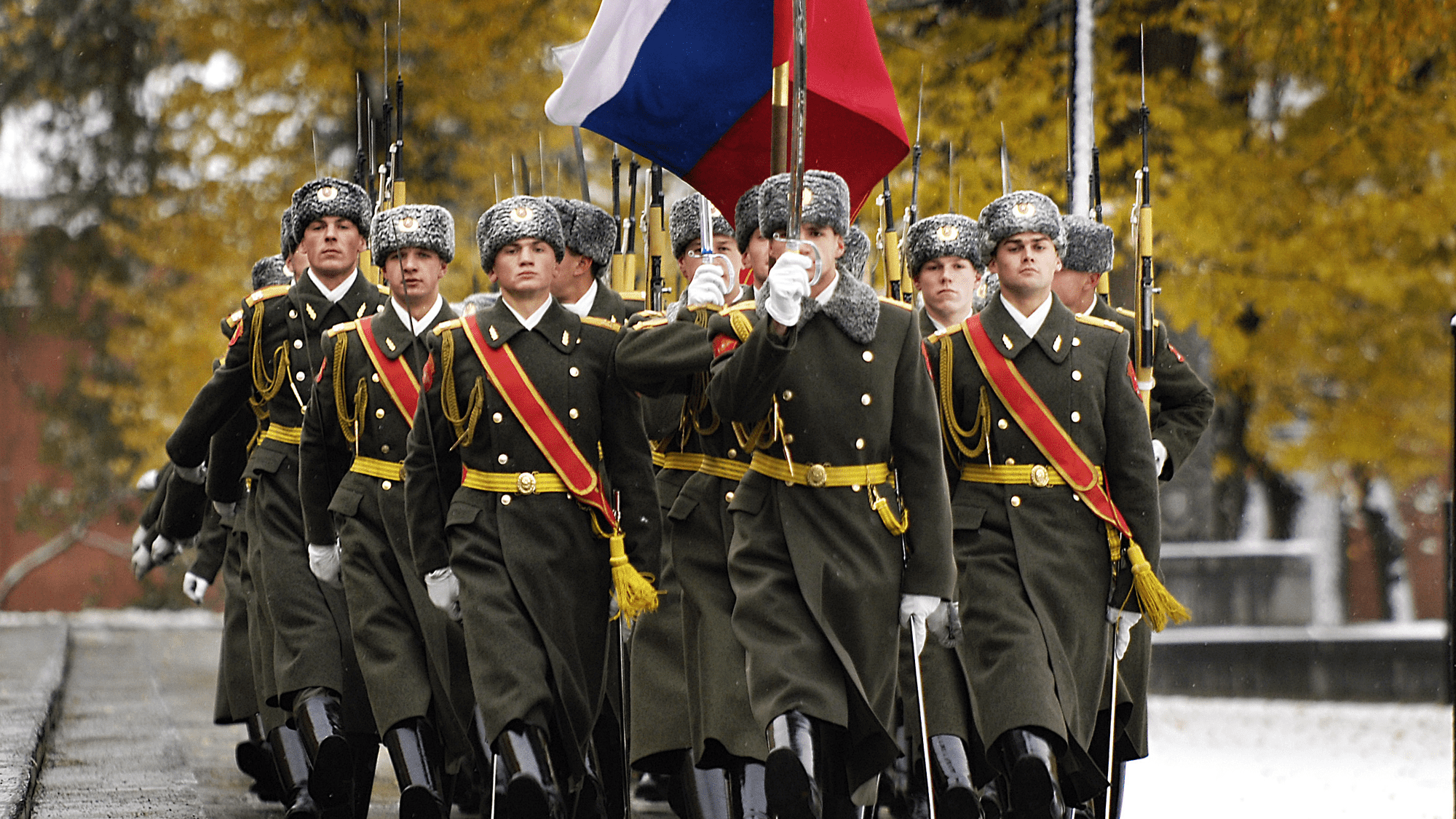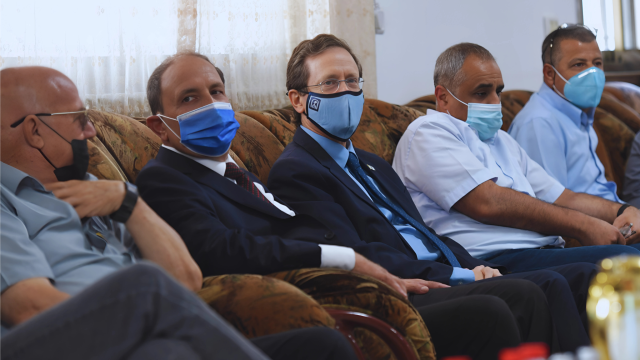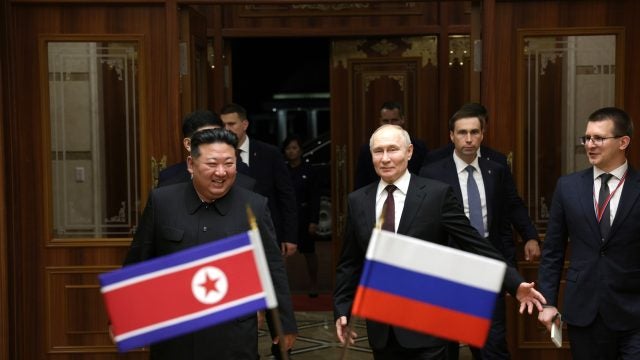
Title: Demystifying the Enemy: Putin’s Geopolitical Calculus and the War in Ukraine
Many assessments of the reasons for Russia’s invasion of Ukraine have emphasized Vladimir Putin’s individual characteristics, such as his early career as a KGB officer, imperial ambitions towards Ukraine, or belief in Ukraine’s cultural affinity to Russia. This article argues that the invasion can be better explained by offensive geopolitical rationality. Putin got a few things about the war in Ukraine wrong; however, from a geopolitical standpoint, he also got a few things right. These include the limits of the West’s support for Ukraine, the willingness of other non-Western countries to cooperate with Russia, and the limited impact of Western sanctions on Russia. In turn, this makes Russia difficult for the West to handle but also encourages the development of a more nuanced and potentially effective response that takes geopolitics into consideration.
Russia’s invasion of Ukraine in February 2022 caught many experts by surprise, triggering speculation about the actual motives behind Moscow’s behavior. Observers have tended to focus on the individual level of analysis, referring to various Putin-related causes, such as his villainous KGB mindset, reckless personality, Cold War mentality, fear of color revolution, imperial ambitions toward Ukraine, belief in Ukraine’s cultural affinity to Russia, or even irrationality and madness.
Although attempts to assign blame for the invasion are understandable, trying to read Putin’s mind can be misleading, and the derived conclusions are challenging to verify. Indeed, why should Putin believe in Ukraine’s cultural affinity to Russia, and why should that matter for foreign policy? Similarly, why should Putin worry about a potential color revolution given the regime’s capacity to suppress any form of dissent?
The incongruity of these questions suggests that Putin is not a delusional dreamer, who, as Angela Merkel once put it, “lives in a different world.” Nor does he care about Ukraine’s cultural affinities. Instead, Moscow’s foreign policy calculus can be explained by offensive geopolitical opportunism that responds to the stark reality of great power politics.
Geopolitical Framework of the War in Ukraine
The core of Russia’s geopolitical calculus lies in the balance of power in the international system according to the spatial and positional terms of core and periphery. Russia views power in territorial terms, basing its behavior on its interpretations of and responses to existing geopolitical opportunities and constraints.
The West’s behavior corroborates Putin’s geopolitical considerations. Multiple rounds of NATO expansion have brought the “enemy” to the gate, confirming Putin’s fear that the West is encircling Russia, using Ukraine as a bulwark. Some top U.S. officials have further reinforced this self-fulfilling prophecy. Shortly before the breakout of the 2014 Ukraine crisis, then-Secretary of State Hillary Clinton stated that “There is a move to re-Sovietize the region … It’s going to be called a customs union … it will be called the Eurasian Union and all of that, but let’s make no mistake about it. We know what the goal is, and we are trying to figure out effective ways to slow down or prevent it.” In 2023, former Secretary of State Condoleezza Rice acknowledged that the United States’ efforts to arm and incorporate Ukraine into NATO are part of a proxy war against Russia, further consolidating the geopolitical imperatives in Moscow’s behavior.
What Putin Has Strategically Got Right
Putin has gotten many things wrong, and these have been widely discussed elsewhere. However, there are also a few key things he has got right – “right” not in a humanitarian or normative sense, but in a geopolitical one.
Constraints of Western Support for Ukraine
Putin’s first correct assessment is that the United States and NATO will not fight and die for Ukraine. The West’s strong reaction to Russia’s invasion fell short of the protection necessary to mitigate severe harm to Ukraine. Europe cannot tackle Russia alone, whereas the United States’ primary long-term concern is China and the Asia-Pacific, meaning that Washington cannot fully support its European allies in Ukraine. Zelensky’s statements reflect growing frustration with Western support: in 2022, he claimed that “we are defending Ukraine alone. Who is ready to fight alongside us? I don’t see anyone… Everyone is afraid.” Then, in a May 2024 interview with the New York Times, he challenged the West again over its hesitations with weapons supplies, asking, “What’s the problem?” According to the General Secretary of NATO, Jens Stoltenberg, despite the support provided to Ukraine, “NATO is not party to the conflict and NATO will not be party to the conflict.” The limits of the West’s support of Ukraine are crystal clear to Putin and his supporters.
The Willingness of Other Countries to Cooperate with Russia
Putin’s second correct assessment is that non-Western countries, particularly China, would support Russia. Russia’s invasion of Ukraine and the subsequent crisis in Russia-West relations did not undermine China-Russia strategic alignment. On June 15, 2022, more than three months after the invasion, Xi and Putin held phone talks in which Xi confirmed that “the Chinese side stands ready to work with the Russian side to push for steady and long-term development of practical bilateral cooperation,” advocating for “a proper settlement of the Ukraine crisis in a responsible manner.” From January to November 2023, China-Russia bilateral trade reached a historic high of $218.2 billion, achieving their goal for 2024. Continuing bilateral military exercises and joint air patrols over the Western Pacific, especially the incidents of Chinese and Russian warplanes entering the South Korean air defense zone together, also indicate that China is not distancing itself from Russia. Likewise, on July 24, 2024, the United States intercepted Russian and Chinese bombers flying together in the Alaska Air Defense Identification Zone for the first time. Facing an impending confrontation with the United States, Beijing cannot afford to turn its back on its only great power ally.
Other major non-Western partners also appear willing to strengthen cooperation with Russia despite the war in Ukraine, revealing that Russia’s global isolation is a myth. Vietnam, an economic heavyweight within ASEAN, is allegedly a friend of the United States. Nonetheless, Vietnamese President To Lam recently welcomed Putin in Hanoi on June 20, 2024, announcing that Putin had contributed to “peace, stability and development” in the Asia-Pacific region and the world. He further declared his intentions to “push up” economic, security, and defense cooperation to create “a reliable security architecture” in the region.
From July 8 to 9, 2024, Narendra Modi—the leader of the world’s largest democracy and also allegedly a U.S. ally—visited Moscow and thanked his “dear friend” Putin for his commitment to the Russia-India relationship, which “has been tested multiple times and has emerged very strong each time.” India has never condemned Russia for the invasion of Ukraine and continues to cooperate with Russia. In fact, Indian purchases of Russian crude oil have largely made up for the decrease in demand from Europe, as have Indian exports of diesel and other refined oil products to European buyers, who appear willing to buy Russian oil after it has been refined in India.
Limited Effectiveness of Anti-Russian Sanctions
Putin’s third correct assessment is that the Western sanctions could not hurt Russia enough to undermine his grip on power. While various assessments suggest that the sanctions can harm Russia in the long term, so far, neither an economic nor political crisis has appeared imminent in Russia. It is unlikely that Putin did not foresee the Western sanctions response. Instead, it is more plausible that Moscow evaluated that it could act as it sees fit in Ukraine with little regard for the danger of curtailed relations with the West. In January 2024, the International Monetary Fund predicted strong economic growth in Russia despite sanctions, suggesting that Russia might have the resources to fuel a long war of attrition. Russia’s growing economic cooperation with major non-Western partners has largely thwarted Western sanctions.
Moreover, Russian state propaganda effectively channels public indignation about economic hardships into anger against the external enemy—the West. While in February 2021, only 71 percent of Russians approved of Putin’s job as president, this figure rose to 83 percent in March 2022. Though this data should be taken with skepticism, there is little indication of sanctions undermining the stability of Putin’s regime. The government’s systematic suppression of dissidents and transnational networks of nongovernmental organizations (NGOs), alongside the exodus of many pro-democracy activists and politicians after the war, has weakened civil society in Russia. With anti-war protests and social mobilization continuing to face ruthless oppression, Putin’s power remains strong in Russia.
Implications of the Geopolitical Lens
The fact that Putin’s strategic calculus is based on opportunistic geopolitical rationality carries both good and bad news. The good news is that Russia’s behavior is nothing extraordinary or hard to comprehend. Russia is engaged in a geopolitical offensive against the West, and Ukraine, like Georgia in 2008, stands in its way. Sufficient attention to geopolitics can help identify the recurring patterns in Russia’s behavior and facilitate more appropriate responses to Russia’s actions.
The bad news is that Russia is unlikely to give up on pursuing regional dominance so long as its capabilities and strategic alignments remain. The invasion of Ukraine is the most intense manifestation of post-Soviet Russia’s attempts to roll back what it views as the expansion of the West.
In this context, the United States and its allies need a more prudent strategy towards Russia that supersedes the simplistic binary between appeasement and defeating Russia. For Europe and the United States, the former involves significant political costs, whereas the latter implies all-out war with unpredictable implications. The deterioration of China-U.S. relations further complicates the issue. These factors limit the space in which the West is willing to act.
However, knowing that Russia’s behavior is not an idiosyncratic anomaly—but rather a strategy driven by geopolitical power balancing vis-à-vis the West—allows Washington to develop a more nuanced and potentially effective response. For instance, creating spaces for selective cooperation with Moscow in the Indo-Pacific, where the United States and Russia’s interests do not clash directly, could offer an alternative to the costly “defeat or appease” approach. This strategy may incentivize Russia to reconsider its hard balancing against the West, including the consolidation of China-Russia alignment. The situation regarding Ukraine remains bleak, but Western openness to negotiation over Ukraine’s neutrality status could alleviate the conflict.
. . .
Alexander Korolev is Senior Lecturer in Politics and International relations in the School of Social Sciences at the University of New South Wales, Sydney. Before joining UNSW, Alex was a Research Fellow in the Centre on Asia and Globalisation at the National University Singapore, Lee Kuan Yew School of Public Policy (2015-2018). His research interests include international relations theory and comparative politics with special reference to China and Russia, great power politics, China-Russia-U.S. relations, and small and middle powers in the context of intensifying great power rivalry.
Image credit: Staff Sgt. D. Myles Cullen, Wikimedia Commons, via public domain.
Recommended Articles

The Druze community in Israel occupies a unique position as a minority group deeply integrated into national defense and political life. This article explores the historical and contemporary…

The presence of North Korean forces in Ukraine could reinforce Russian propaganda aimed at forcing Ukraine into an unfavorable ceasefire by adding to misperceptions that the war might be unwinnable.

The European Union faces a critical opportunity to reshape its defense strategy in response to shifting global dynamics and the potential for a more isolationist US administration. The…